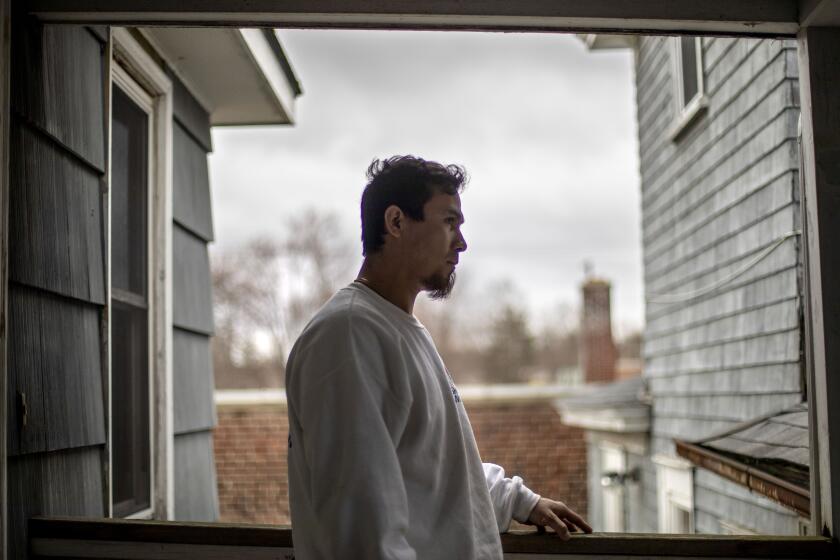California community colleges sue U.S. for denying COVID-19 funds to undocumented students, others

- Share via
The nation’s largest community college system is suing the federal government for denying coronavirus relief funds to more than a half-million California students, including DACA recipients and many of those from low-income families.
California Community Colleges Chancellor Eloy Ortiz Oakley and the system’s Board of Governors filed suit this week in U.S. District Court in San Francisco against the Department of Education and Secretary Betsy DeVos over eligibility restrictions placed on the use of federal aid money for students, arguing that the restrictions are unconstitutional.
“The Department of Education ignored the intent of the CARES Act to give local colleges discretion to aid students most affected by the pandemic, and instead has arbitrarily excluded as many as 800,000 community college students,” Oakley said in a statement.
The CARES Act, approved by Congress March 27, set aside $14 billion for higher education relief. At least half of the money must go directly to students in the form of emergency grants.
Subsequent guidance put out by the Department of Education states that only students who are eligible to receive federal financial aid qualify for the assistance. That leaves out large numbers of undocumented students, including those with work permits through the Deferred Action for Childhood Arrivals program; students without high school diplomas; students enrolled in non-credit programs; and students who fail to maintain satisfactory academic progress.
At the California Community Colleges, more than 500,000 of the 1.5 million students enrolled in the spring semester are ineligible because they fall into one of those categories, including about 70,000 undocumented students, the chancellor’s office said. Another 275,000 are probably ineligible because they never filled out an application for federal financial aid. Many low-income students at California community colleges don’t fill out the application because they receive a tuition fee waiver through the state.
Congress’ coronavirus relief package excludes millions of immigrants who do not have legal status in the U.S. but who work here and pay taxes.
Those excluded include veterans, students with disabilities, and students training to be healthcare workers and first responders, the chancellor’s office said.
“Many students who may be most in need of relief will be deprived of assistance during this public health crisis,” the lawsuit states.
The lawsuit, in which the Foothill-De Anza, Los Angeles, Los Rios and San Diego community college districts are also named plaintiffs, argues that the Department of Education overreached.
“Congress provided higher education institutions with unfettered flexibility to distribute the relief to affected students as they deemed appropriate, imposing no eligibility limitations,” the lawsuit states.
In a statement, Department of Education spokeswoman Angela Morabito said, “There is no persuasive legal support for the proposition that Congress intended the CARES Act to create an entitlement for DACA recipients and others who are otherwise ineligible for federal public benefits. The CARES Act clearly ties eligibility for this funding to Title IV eligibility. ... It is absurd that special interests want the department to fabricate a basis to send U.S. taxpayer money to noncitizens, especially given how many American students are in need of this emergency relief.”
Kevin Wallsten, a political science professor at Cal State Long Beach who studies policy making, says it’s not unusual for Congress to write laws that are vague and leave it to bureaucratic agencies to work out the details of implementation.
“In a sense this is how law is passed and implemented,” Wallsten said. “But that doesn’t mean it’s OK. It doesn’t always mean that the agency or the department in question is doing something that is within congressional intent or constitutional.”
Wallsten said the suit might be difficult to win, though, because courts generally give “tremendous deference” to federal agencies that are implementing congressional laws.
More to Read
Sign up for Essential California
The most important California stories and recommendations in your inbox every morning.
You may occasionally receive promotional content from the Los Angeles Times.












